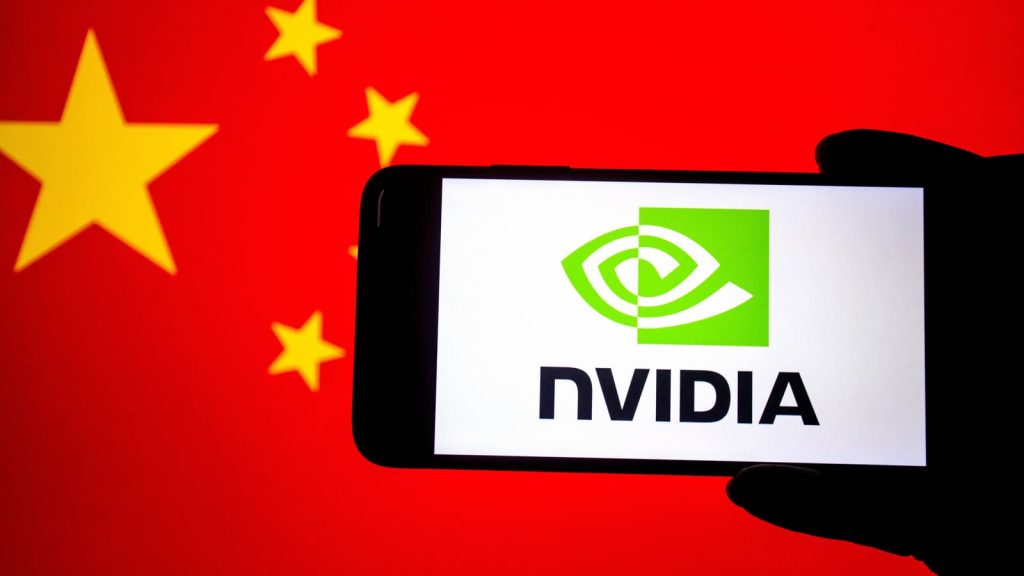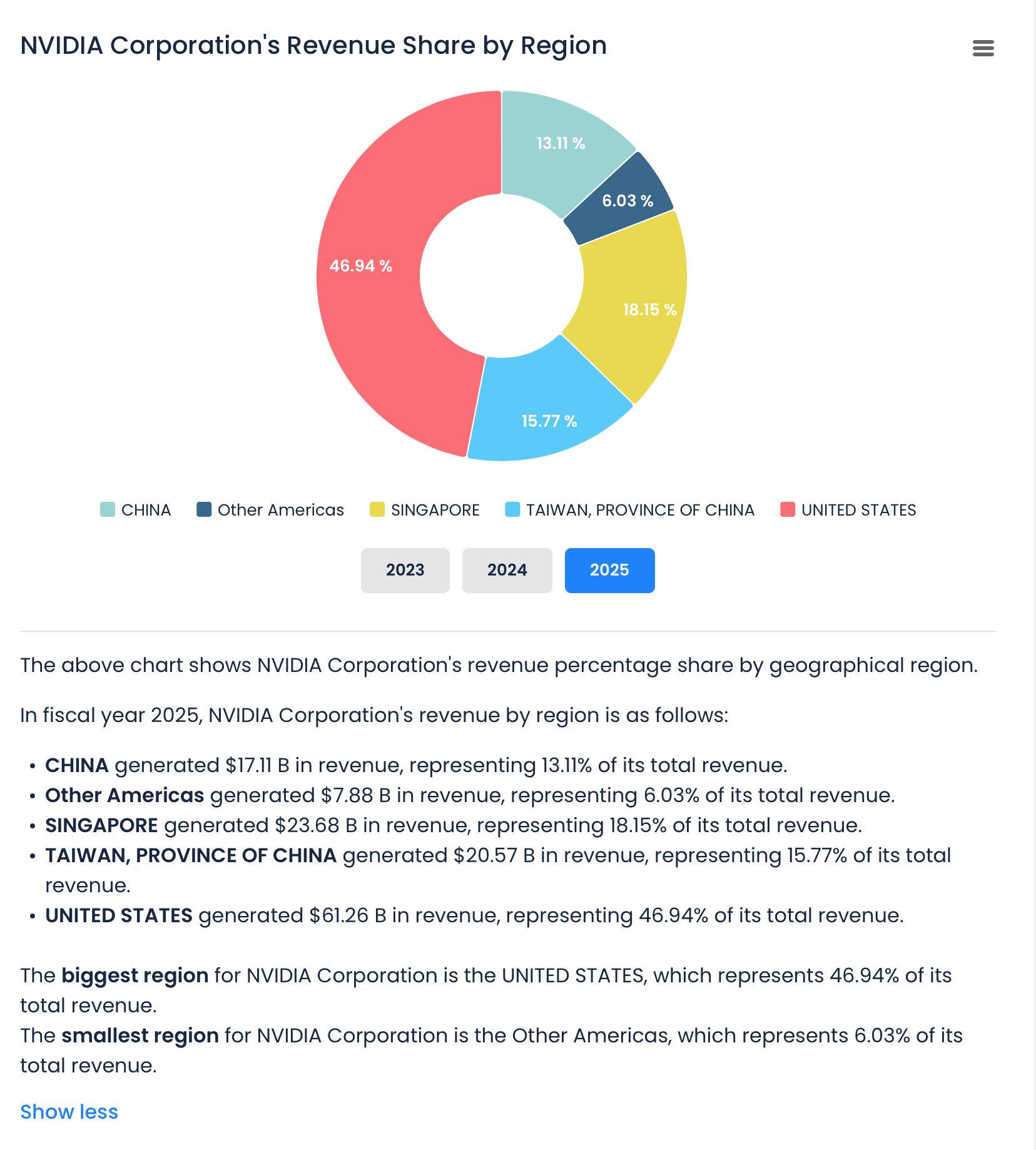- Trump will be allowing Nvidia and AMD to resume sales of licensed AI chips to China in exchange for a 15% revenue cut.
- China has been sending notices to the nation’s biggest tech and AI players to dissuade them from buying Nvidia’s AI chips like the H20, citing security risks.
- Nvidia’s stock dropped 3.5% following its Q2 earnings report with Jensen Huang justifying the outcome by highlighting the lack of H20 sales this year.
Let’s cut through the noise for a second.
When headlines flashed that former President Trump was relaxing export restrictions on AI chips to China, it seemed like a lifeline for Nvidia.
Finally, a chance to claw back some of the billions in lost revenue from one of its most critical markets, right? Well, not so fast. As someone who’s been tracking this geopolitical tech saga closely, I’m here to tell you that this so-called “win” might be a Pyrrhic victory.
In fact, Nvidia’s sales could still take a massive hit—and the reasons have less to do with American politics and everything to do with Chinese defiance, economic self-preservation, and a fundamental breakdown of trust.
The H20 Chip: A Band-Aid On A Geopolitical Wound
First, some context. Back in April 2022, the Biden administration dropped a hammer on Nvidia’s China ambitions, slapping export restrictions on flagship AI GPUs like the A100 and H100.
Nvidia’s response was ingenious, if not desperate: create a purpose-built, downgraded chip for the Chinese market—the H20.
But then, in a characteristically unpredictable move this past April, Trump extended the ban to include even these neutered H20 chips.
The goal? To further destabilize China’s AI development, both economically and militarily.

The result? An absolute nightmare for Nvidia.
Subsequently, the company took a staggering $5.5 billion hit in its Q1 2025 earnings, all while incurring massive holding costs for a growing stockpile of unsold H20 inventory sitting in warehouses.
The “Unconstitutional” Export Tax: A Baffling Compromise
Now, in a sudden about-face, Trump has agreed to allow Nvidia and AMD to resume exports of their China-specific chips.
But there’s a catch—a whopper of one. The deal mandates that Nvidia hand over 15% of the total revenue from every H20 chip sold to China directly to the U.S. government.
Some legal scholars have gone as far as to call it an unconstitutional “export tax.”
Frankly, this leaves financial analysts and industrial experts utterly perplexed.
For example, Deborah Elms, the Head of Trade Policy at the Hinrich Foundation was quoted as saying:
You either have a national security problem or you don’t.
She went on to add:
If you have a 15% payment, it doesn’t somehow eliminate the national security issue.
Frankly, this “deal” leaves financial analysts and industrial experts utterly perplexed.
If these chips were deemed such a critical national security threat that they warranted an outright ban just months ago, how does slapping a 15% fee on them suddenly alleviate that risk? It doesn’t.
Consequently, this move feels less like a strategic policy and more like a revenue-generating gambit that fundamentally misunderstands the playing field.
China’s Backlash: Trust Issues And A Push For Self-Reliance
Here’s where the situation gets even messier. Instead of greeting this relaxation with open arms, the Chinese government has reacted with deep suspicion and outright hostility.
Beijing is now strongly advising and somewhat mandating Chinese firms and industrialists to avoid Nvidia’s H20 chips entirely, publicly raising the specter that they may contain concealed tracking technology and remote-access backdoors.
Think about that for a moment. The very market Nvidia is desperate to re-enter is being told its products could be Trojan horses.
However, Nvidia CEO Jensen Huang has personally denied these allegations, stating that he is in constant discussions to provide reassurance to the Chinese government.
But the damage to trust may already be done. Unfortunately for Nvidia, In the high-stakes world of national AI infrastructure, perception is often reality.
As a result, Nvidia has begun slowing down H20 production to align its supply chain with the current market conditions.
Of course, the Chinese government’s suspicion isn’t surprising considering that Congress passed a Chip Security Act in May which would compel semiconductor companies like Nvidia to incorporate security mechanisms and location verification systems in their hi-tech AI chips.
The Rise Of Domestic Alternatives: Cutting Out The Middleman
Beyond the distrust, there’s an even larger, more existential threat to Nvidia: China’s ferocious drive toward self-sufficiency.
Beijing isn’t just telling companies to avoid U.S. chips; it’s actively pouring billions into its domestic semiconductor industry with the clear goal of eliminating reliance on Western hardware altogether.
Companies like Huawei are already making significant strides with their Ascend series of AI accelerators.
For many Chinese firms, buying from a domestic supplier isn’t just a patriotic choice—it’s a strategically safe one, free from the whiplash of unpredictable U.S. export policy.
Why would a Chinese tech giant invest in a politically fraught supply chain when a homegrown alternative is being aggressively championed by its own government?
The $17 Billion Question: A Market On The Brink
When you step back and look at all these factors, the picture becomes alarmingly clear for Nvidia.
To begin with, its annual sales in China, which have historically exceeded $17 billion, are not safe. They are hanging in the balance.

Moving on, the 15% export tax erodes Nvidia’s profit margins, making its chips even more expensive in a market that is already skeptical of their value and security.
Meanwhile, Beijing’s campaign for technological independence is gaining powerful momentum.
Even if some Chinese firms continue to buy the H20 for its superior performance in the short term, the long-term trend is unmistakable: China is closing its doors.
Thank you! Please share your positive feedback. 🔋
How could we improve this post? Please Help us. 😔
[Wiki Editor]
Ali Rashid Khan is an avid gamer, hardware enthusiast, photographer, and devoted litterateur with a period of experience spanning more than 14 years. Sporting a specialization with regards to the latest tech in flagship phones, gaming laptops, and top-of-the-line PCs, Ali is known for consistently presenting the most detailed objective perspective on all types of gaming products, ranging from the Best Motherboards, CPU Coolers, RAM kits, GPUs, and PSUs amongst numerous other peripherals. When he’s not busy writing, you’ll find Ali meddling with mechanical keyboards, indulging in vehicular racing, or professionally competing worldwide with fellow mind-sport athletes in Scrabble. Currently speaking, Ali’s about to complete his Bachelor’s in Business Administration from Bahria University Karachi Campus.
Get In Touch: alirashid@tech4gamers.com




